TV
Choo Sung-hoon Shares Personal Experiences of Discrimination as a Korean-Japanese Athlete
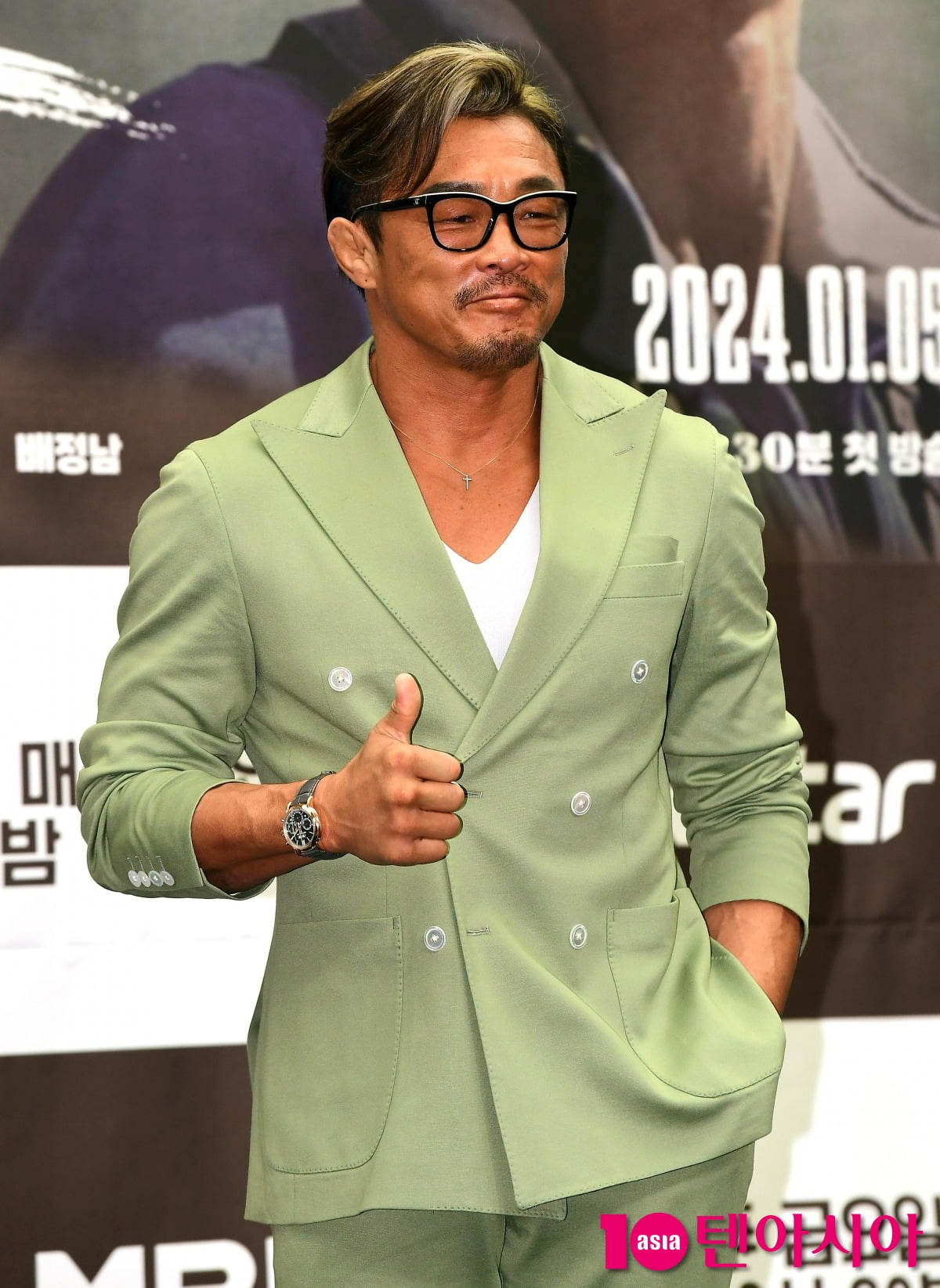
On the MBC program 'Heartfelt Lecturers' aired on the 3rd, Choo delivered his first-ever lecture on the theme 'When the World Doesn't Go Your Way.' Taking the stage, Choo admitted, 'This is my first lecture. My Korean pronunciation isn't perfect, and I still struggle with difficult words. I wondered why I should share my story in front of people,' he said, adding, 'I hope that by hearing my story, others might think, 'Maybe I should give it a try too.''
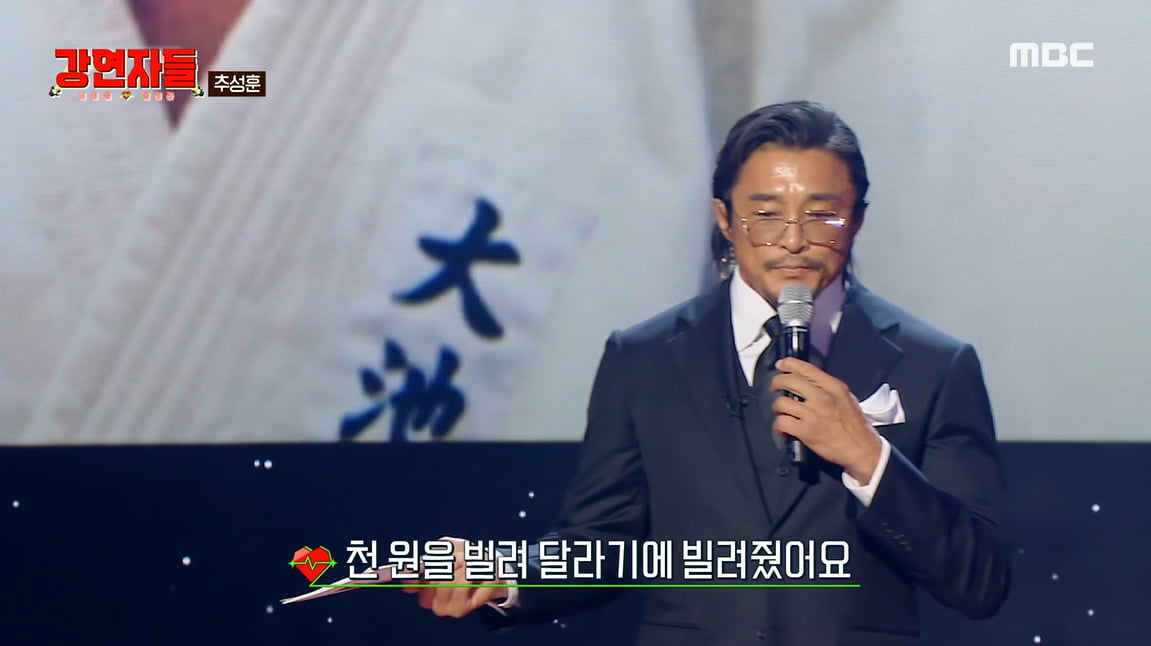
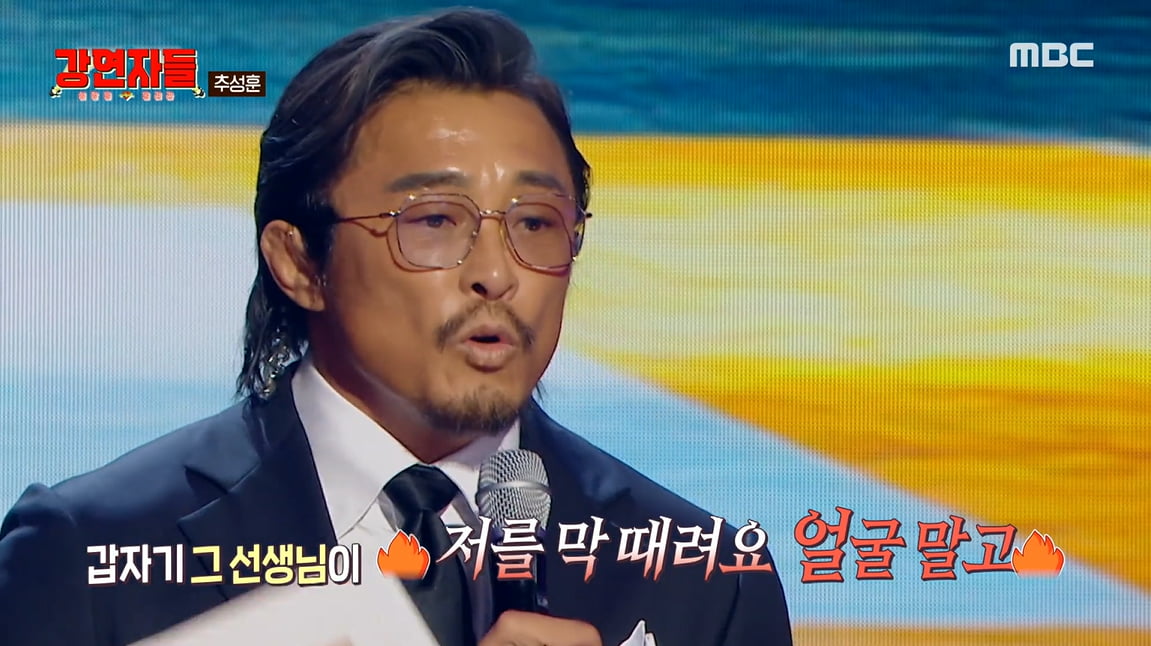
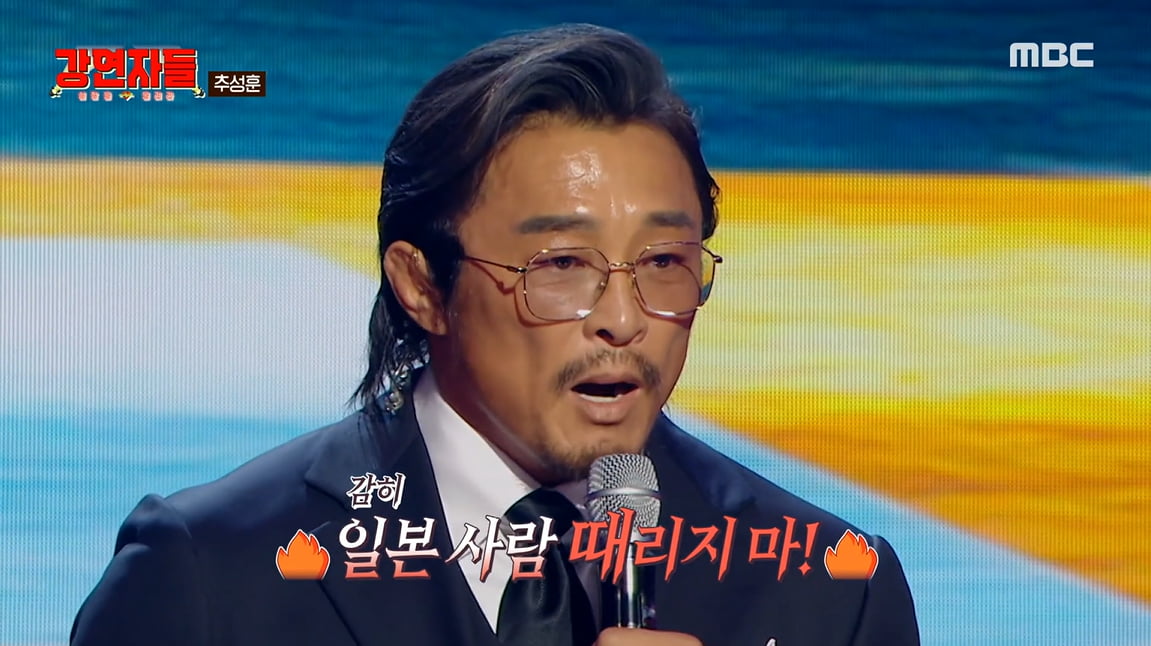
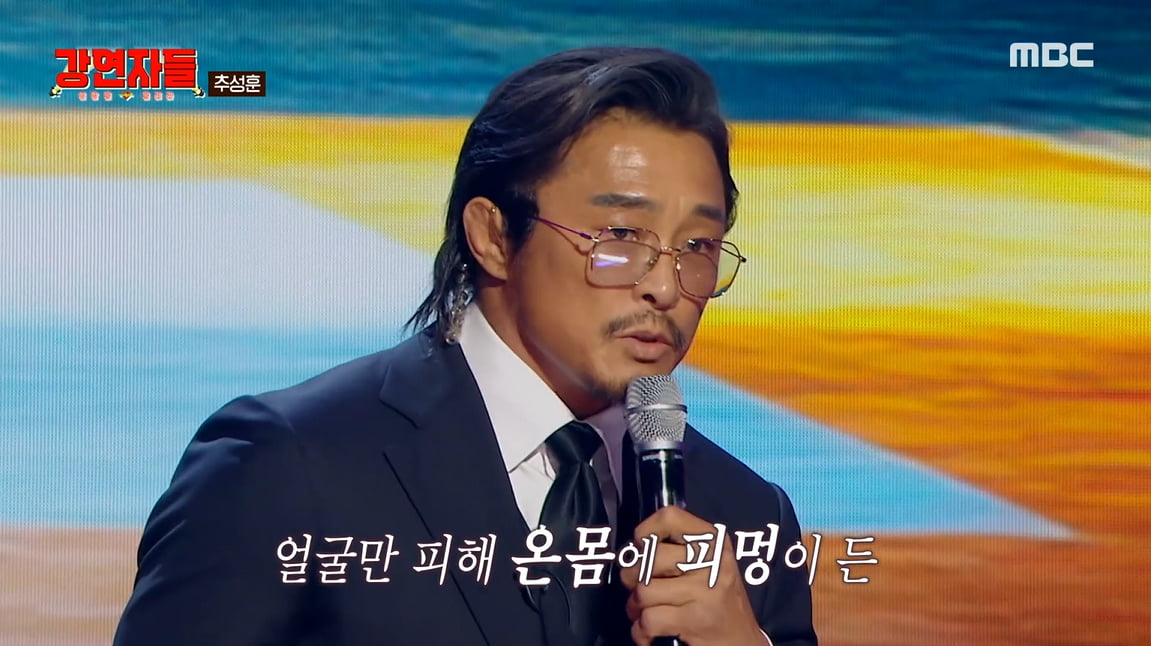
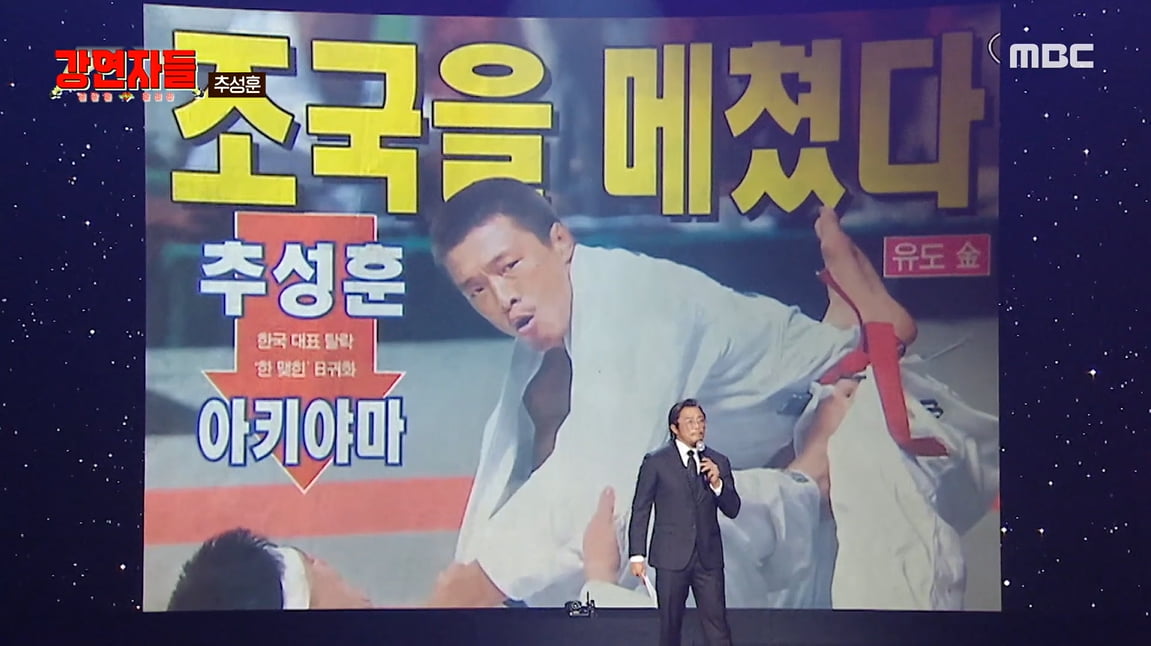
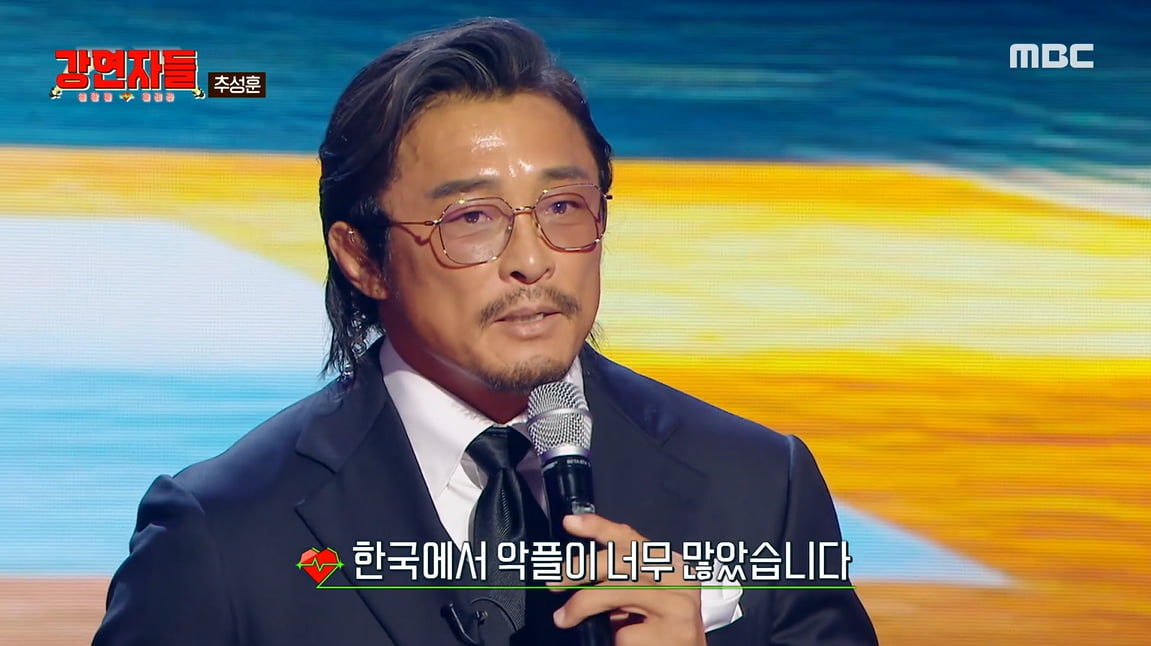
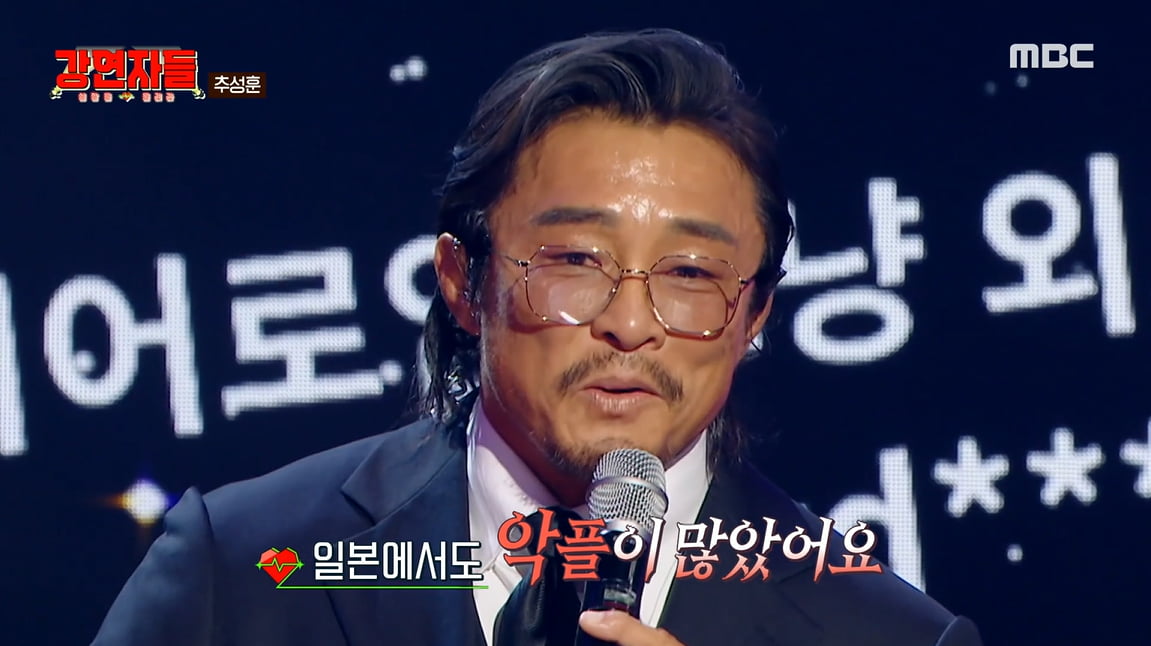
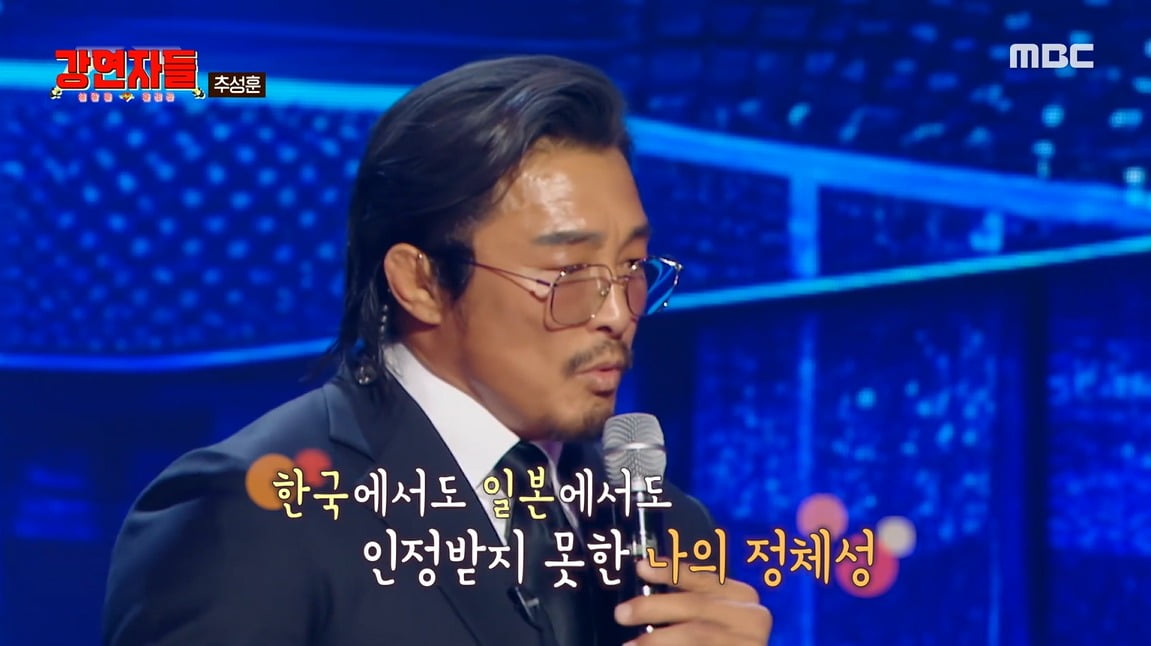
After 3 years and 7 months of competing in Korea, Choo decided to naturalize in Japan. A year later, he was selected as a member of the Japanese national team. At the 2002 Busan Asian Games, Choo won a gold medal in a Korea-Japan match. 'Seeing the Japanese flag at the top and the Korean flag beside it felt strange,' he shared. Choo emphasized that his decision to naturalize in Japan was solely to pursue judo. 'I wanted to be recognized as a 'valuable athlete' by winning against Korea. But the next day, the newspaper headline read, 'He Threw His Homeland,' he recalled. Facing criticism from both Korea and Japan, Choo expressed, 'I wondered which country I truly belonged to. In Korea, I was seen as Japanese, and in Japan, as Korean.' After retiring from judo, Choo ventured into mixed martial arts, donning uniforms with both Korean and Japanese flags on the sleeves.
Despite his initial reluctance to compete in Korea due to past trauma, he was surprised by the support from Korean fans. 'After naturalizing in Japan, the name Choo Sung-hoon disappeared, but in Korea, they still call me Choo Sung-hoon. Some even call me 'Sarang's dad,'' he said, emphasizing, 'My blood and heart are Korean.' Choo has taught his daughter Sarang about Korean culture, including the Korean language and national anthem, from a young age. 'I was worried Sarang might see the harsh comments online. Especially when I saw comments like 'Be careful with your daughter. We know where you live,' I felt anxious while appearing on parenting shows,' he confessed. Choo even guarded Sarang's school route to ensure her safety. When asked about plans for another child, Choo replied, 'Absolutely not.' In April last year, Choo's father passed away while playing golf, leaving six holes unfinished. At his father's funeral, Choo dressed him in a judo uniform as his burial attire. Choo concluded his lecture by sharing his father's advice: 'Every moment in life is a choice. Always choose the difficult path. It's not about taking the easy road but finding the path that helps and leads to success. I will keep challenging myself without stopping,' he declared, asking, 'Will you join me in this challenge?'
Reporter Kim Ji-won, Ten Asia bella@tenasia.co.kr